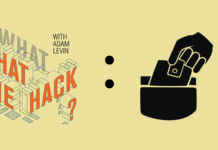

I know, the threat of identity theft may still seem abstract to you. What does identity theft really mean, anyway? A big arrest in Manhattan may make the whole concept a bit more literal. The district attorney of Manhattan recently arrested 27 (alleged) balls of slime for taking stolen credit card numbers on a two-year shopping spree at Apple stores across the country.
The scam was moderately sophisticated. The crime ring’s founder, Shaheed Bilal, and his associates went online to a black-market website and bought the stolen names and credit card numbers of consumers, according to a press release by the Manhattan District Attorney. The ring printed the names and numbers onto blank credit cards using commercial credit card printing machines.
Then a network of “shoppers” used the counterfeit cards at Apple stores from New York to California, buying iPhones, iPads, laptops and gift cards, which were fenced for cash.
“This investigation highlights the threats posed to businesses and individuals by criminal enterprises engaged in cyberfraud and identity theft,” Brian G. Parr, Special Agent in charge of the Secret Service New York Field Office, said in a press release.
Ever wonder how somebody could steal your identity and use it to make money? This is how.
Federal agents recovered three guns and $300,000 when they arrested members of the ring. But two other facts may be even better illustrations just how successful this scam was. First: Bilal was able to keep the ring going for two years, even while he was jailed on unrelated charges. Second: (Alleged) ball of slime Anthony Hooper, one of the ring’s original shoppers, found the scam so lucrative that he left and created his own crime ring to do the exact same thing.
So I’d like to give a tip of my hat to Parr and Manhattan District Attorney Cyrus R. Vance. Jr. for putting these (alleged) balls of slime behind bars. I’d also like to thank them for perhaps an even bigger public service, of delivering such a technologically sophisticated but strategically simple scam to public light.
It’s a case that nearly screams: This is identity theft. It’s happening. It’s hurting real people in simple, direct ways. And we all need to be on the lookout.
Originally posted at Credit.com.









